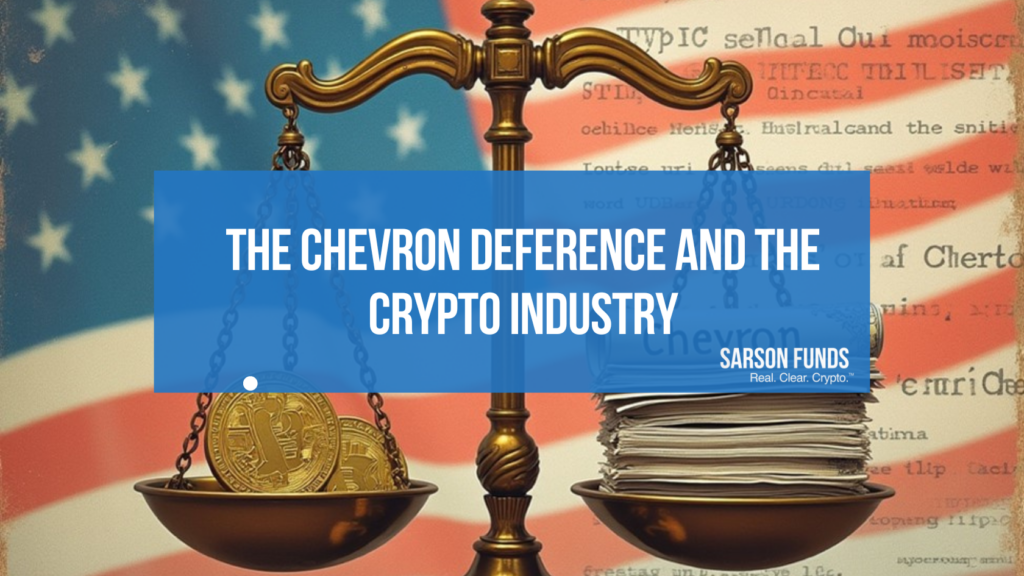
What Is Chevron Deference?
Chevron Deference refers to a legal doctrine allowing courts to defer to administrative agencies on cases involving ambiguous regulations. This doctrine required that regulations issued by these agencies be reasonable, leaving much of the interpretation to regulators who were presumed to have subject matter expertise. This approach often led to “regulation without legislation,” expanding the power of U.S. regulatory agencies. Agencies like the SEC and CFTC used Chevron Deference to impose rules on emerging industries, such as cryptocurrency, without seeking input from Congress or other elected bodies. As a result, there was no legal requirement for industry rulemaking, and this deference became widely adopted, cited over 15,000 times since its introduction in 1984.
Conflicts of Interest and Challenges
The problem with Chevron Deference arose when regulators’ judgment of reasonableness was influenced by conflicts of interest. For instance, the SEC, funded by existing industry participants, had a vested interest in curbing innovation and stifling new business strategies, particularly those of crypto companies. The reversal of this doctrine now forces regulators to base their regulations on existing legislation rather than their interpretation of reasonableness. This is a positive development for the crypto industry and decentralized finance (DeFi). In a democratic society, unchecked regulatory authority can create a dangerous environment, giving agencies more power than intended. The Chevron Deference was a major factor in the growth of the “administrative state” in the U.S., which is why the U.S. Supreme Court recently struck it down in a 6-3 ruling.
Impact on Future Crypto Legislation
The overturning of Chevron Deference is expected to positively impact future crypto legislation, as it provides the industry with more room for growth. Judges and justices will now need to interpret relevant laws based on arguments presented, rather than deferring automatically to agency judgment.
Historical Use Against Crypto
Used by the CFTC in 2018, the Chevron Deference allowed the court to uphold the CFTC’s governance of virtual currencies and its status as a commodity exchange during the case CFTC v. McDonnell (2018). The doctrine originated from the case Chevron U.S.A. Inc. v. Natural Resources Defense Council, 468 U.S. 837 (1984). For forty years, this was the accepted practice until 2024, when during the case Loper Bright Enterprises v. Raimondo (2024), the Supreme Court ruled that it was against the Administrative Procedure Act (APA). The ruling dictated that courts must decide the rule of law, deeming the Chevron Deference unconstitutional. This ruling was not an overnight change but rather part of a gradual decline in the use of the Chevron doctrine, which has decreased significantly since 2016, especially during the Trump administration. Chief Justice Roberts even described it as a “decaying husk” of “crumbling precedents.”
What Remains from Chevron?
While Chevron Deference has been overturned, the related Skidmore Deference remains. Under Skidmore, courts are encouraged to consider the expertise of relevant agencies in cases of regulatory ambiguity. This means that even without Chevron, individual judges may still rely on agency expertise, potentially limiting significant changes.
Expert Opinions
“That Chevron was overturned has changed many of the calculations made by leaders in Congress as to whether crypto legislation can become law by the end of this year. The actual impacts to how U.S. regulators enforce crypto without the deference previously afforded them means that the courts will be the new center of power in determining what the policies are for this emerging technology.”
– Jason Brett, Key Bridge Advisors
Should this change your perspective on Crypto as a whole?
The repeal of Chevron Deference creates both opportunities and challenges for the crypto industry. While this is a significant moment, the future remains uncertain. The potential for growth is substantial, but the shift also introduces a degree of uncertainty. Despite this, the current outlook for crypto legislation may be seen as positive, providing a chance for the industry to shape its future through innovation and legal clarity.
Disclosures: This is not investment advice. It is not possible to invest in any project directly through Sarson Funds, Inc. or its affiliated managers. Talk with your financial advisor before making any investment decisions or have them contact Sarson Funds directly at [email protected].








